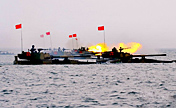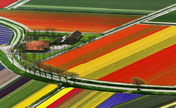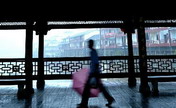

What is feng shui?
Feng shui is an ancient art and science developed over 3,000 years ago in China. It is a complex body of knowledge that reveals how to balance the energies of any given space to assure health and good fortune for people inhabiting it.
Historically, feng shui was widely used to orient buildings — often spiritually significant structures such as tombs, but also dwellings and other structures — in an auspicious manner.
Feng means wind and shui means water. In Chinese culture wind and water are associated with good health, thus good feng shui means good fortune, while bad feng shui means bad luck, or misfortune.
Feng shui is based on the Taoist vision and understanding of nature, particularly on the idea that the land is alive and filled with Chi, or energy.
Principles of feng shui
The main theory of feng shui is based on the traditional theories of Yin and Yang, Luoshu, River Chart and the Book of Changes, etc. The main principles are the harmony of human beings with nature, the balance of Yin and Yang, and the balance of five elements - metal, wood, water, fire and earth.
1. Teks, Yili, Xinjiang
Eight Trigrams Town in Teks county, Yili Kazakh autonomous prefecture, north China's Xinjiang Uygur autonomous region is the only town in the world constructed in accordance with the pattern of Eight Trigrams, a set of symbolic signs created in ancient China and elaborated by the Book of Changes, or I-Ching (Yi Jing).
 |
 Close view of Chinese female snipers
Close view of Chinese female snipers  Amphibious armored brigade conducts training
Amphibious armored brigade conducts training Memorial Day marked in U.S.
Memorial Day marked in U.S. People protest against new gay marriage law in Paris
People protest against new gay marriage law in Paris  School teacher nabbed for molesting students
School teacher nabbed for molesting students Organ donation from 8-year-old blind girl saves 4
Organ donation from 8-year-old blind girl saves 4 Thrilling hurdlers in street during rush hour
Thrilling hurdlers in street during rush hour China’s weekly story
China’s weekly story Wonderful sceneries around world
Wonderful sceneries around world  Hottest celebrity moms in China
Hottest celebrity moms in China  Veranda bridge in central China
Veranda bridge in central China  Dreaming honeymoon in heaven
Dreaming honeymoon in heaven  Chinese firms see strong start in R&D
Chinese firms see strong start in R&D Top 10 most competitive airlines in the world
Top 10 most competitive airlines in the world Nyang River in Nyingchi Prefecture,Tibet
Nyang River in Nyingchi Prefecture,Tibet